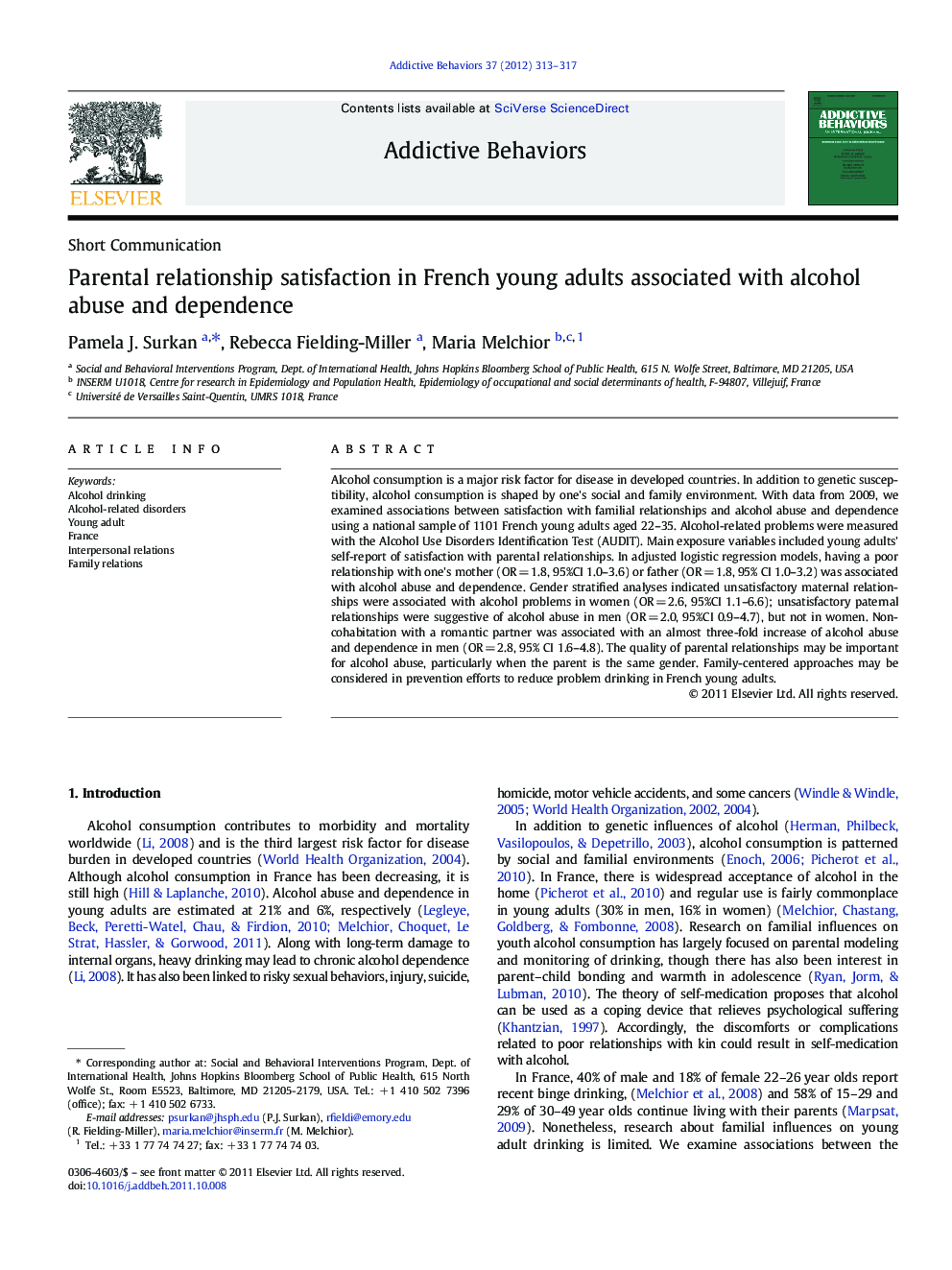| Article ID | Journal | Published Year | Pages | File Type |
|---|---|---|---|---|
| 899281 | Addictive Behaviors | 2012 | 5 Pages |
Alcohol consumption is a major risk factor for disease in developed countries. In addition to genetic susceptibility, alcohol consumption is shaped by one's social and family environment. With data from 2009, we examined associations between satisfaction with familial relationships and alcohol abuse and dependence using a national sample of 1101 French young adults aged 22–35. Alcohol-related problems were measured with the Alcohol Use Disorders Identification Test (AUDIT). Main exposure variables included young adults' self-report of satisfaction with parental relationships. In adjusted logistic regression models, having a poor relationship with one's mother (OR = 1.8, 95%CI 1.0–3.6) or father (OR = 1.8, 95% CI 1.0–3.2) was associated with alcohol abuse and dependence. Gender stratified analyses indicated unsatisfactory maternal relationships were associated with alcohol problems in women (OR = 2.6, 95%CI 1.1–6.6); unsatisfactory paternal relationships were suggestive of alcohol abuse in men (OR = 2.0, 95%CI 0.9–4.7), but not in women. Non-cohabitation with a romantic partner was associated with an almost three-fold increase of alcohol abuse and dependence in men (OR = 2.8, 95% CI 1.6–4.8). The quality of parental relationships may be important for alcohol abuse, particularly when the parent is the same gender. Family-centered approaches may be considered in prevention efforts to reduce problem drinking in French young adults.
► Poor parental relationships were related to risk of excess drinking in young adults. ► Maternal relationships were important for excess drinking in young adult women. ► Partner cohabitation was related to lower risk of excess drinking in young adults. ► Further longitudinal research is needed to elucidate mechanisms. ► Inclusion of parents might be considered in alcohol interventions for young adults.
